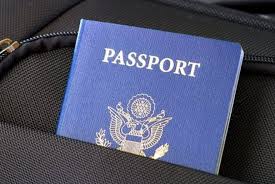Grace Period for Expired Residence Visas: In a significant move that will bring relief to thousands of expatriates, the United Arab Emirates (UAE) has announced a two-month grace period for individuals in violation of the country’s residency system. Starting from September 1, 2024, those with expired visas will no longer face immediate fines or restrictions on leaving the country.

The Federal Authority for Identity, Citizenship, Customs, and Port Security made the announcement on Thursday, August 1, 2024. This decision comes as a gesture of compassion and aims to provide residents with an opportunity to regularize their status without incurring penalties.
New Grace Period: A Lifeline for Overstayers
The new grace period is a welcome relief for those who may have inadvertently overstayed their visas due to various reasons. Whether it’s a simple oversight, financial constraints, or unforeseen circumstances, the extra time will allow individuals to rectify their situation without the fear of hefty fines.
Last year, the UAE standardized the fine for visa overstay to AED 50 per day, down from AED 100 per day previously. However, the new grace period eliminates this financial burden altogether for those who comply within the two-month timeframe.
Understanding UAE Residence Visas
The validity of a UAE residence visa depends on factors such as the visa type and the sponsor. While some visas are valid for one, two, or three years, others can extend up to five or even ten years.
For those on shorter-term visas, a sponsor is typically required, which is usually an employer or educational institution. However, individuals with longer-term visas can often self-sponsor.
Obtaining a UAE residence visa involves several steps, including medical tests, security checks, and applying for an Emirates ID.
Required Documents for a UAE Residence Visa
To apply for a UAE residence visa, you generally need the following documents:
- Medical fitness certificate (for those over 18)
- Recent passport-sized photo
- Valid passport copy
- Valid passport copy of the sponsor with a residence permit
- Birth certificate of dependents (if applicable)
- Entry permit
- Emirates ID application receipt
- Housing lease contract or proof of property ownership
- Medical insurance or health card
- Mother’s residence photo (for newborns)
- Divorce or death certificate (for divorced or widowed women)
- Proof of income (for divorced or widowed women)
While this grace period offers a much-needed reprieve, it’s essential for residents to stay updated on visa regulations and renew their documents well in advance to avoid any potential issues.
Long-Term Residency Options
For those seeking to establish a longer-term presence in the UAE, the country offers several residency options, including the golden, blue, and green visas. These visas come with specific eligibility criteria and benefits.

